Despite tons of innovative ways to communicate online, emails are still one of the most popular and accessible, especially for official or business communication.
But as technologies keep improving, hackers are becoming more skillful, making data security one of the main issues when it comes to the information exchanged online. Various types of cyber-attacks, including email-related, are currently on the list of 5 main risks affecting global safety and stability. In the eyes of cybercriminals, emails are a way of sending spam campaigns, a place for phishing attacks, compromises, and other frauds.
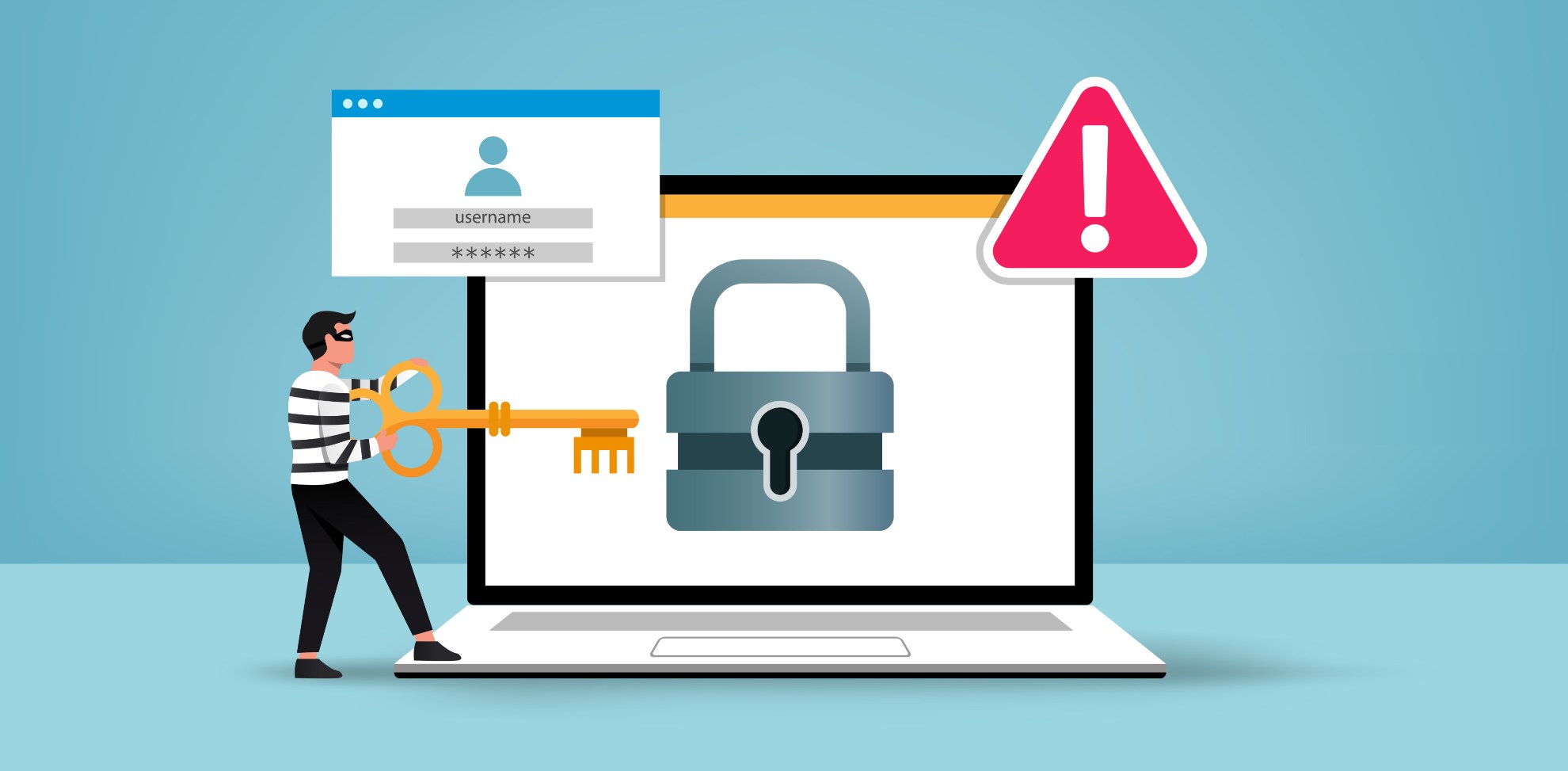
This post is going to share easy-to-implement yet effective ways on how to protect your personal and business email accounts from cyber-criminals.
Why do Cybercriminals Want Your Email Account?
If you think hackers are only targeting emails of giant corporations, you are making the same mistake as thousands of other people. In fact, any email, be it a personal one or corporate, can become a goldmine of data.
For online criminals, an inbox of a random person can be stuck with valuable details.
Emails are generally linked to everything people do online – every service they sign up for, every shop they have purchased from, every bank account they are currently using. Hackers might then have access to tons of data. They can establish a connection to all of the used services, find details of your bank information, and more.
In the corporate realm, many companies send newsletters, transactional emails, CTA messages, and more. When an online criminal gets to this email list, the content of such messages, or other company’s disclosed data, the consequences can be extremely detrimental.
Threats and Consequences of Email Loss
Many world-known companies have already faced massive data breaches, having lost a lot of money and tons of valuable information that should never be made public:
- According to Statista, Yahoo had a tough year in 2019, facing the largest ever data breach with 3+ billion personal accounts compromised.
- Facebook, in the same year, had over 540 million personal records exposed on the cloud server of the Amazon marketplace.
- First American Financial Corp. revealed 885 million clients’ records that included financial information about their clients due to the massive data breach.
- Comparitech states that in 2019, data breaches became the reason for share prices to shift on the stock market, causing a massive drop in their performance.
- In two recent years, as stated in the IBM report, the global average total cost of data breaches reached 3.8 million.
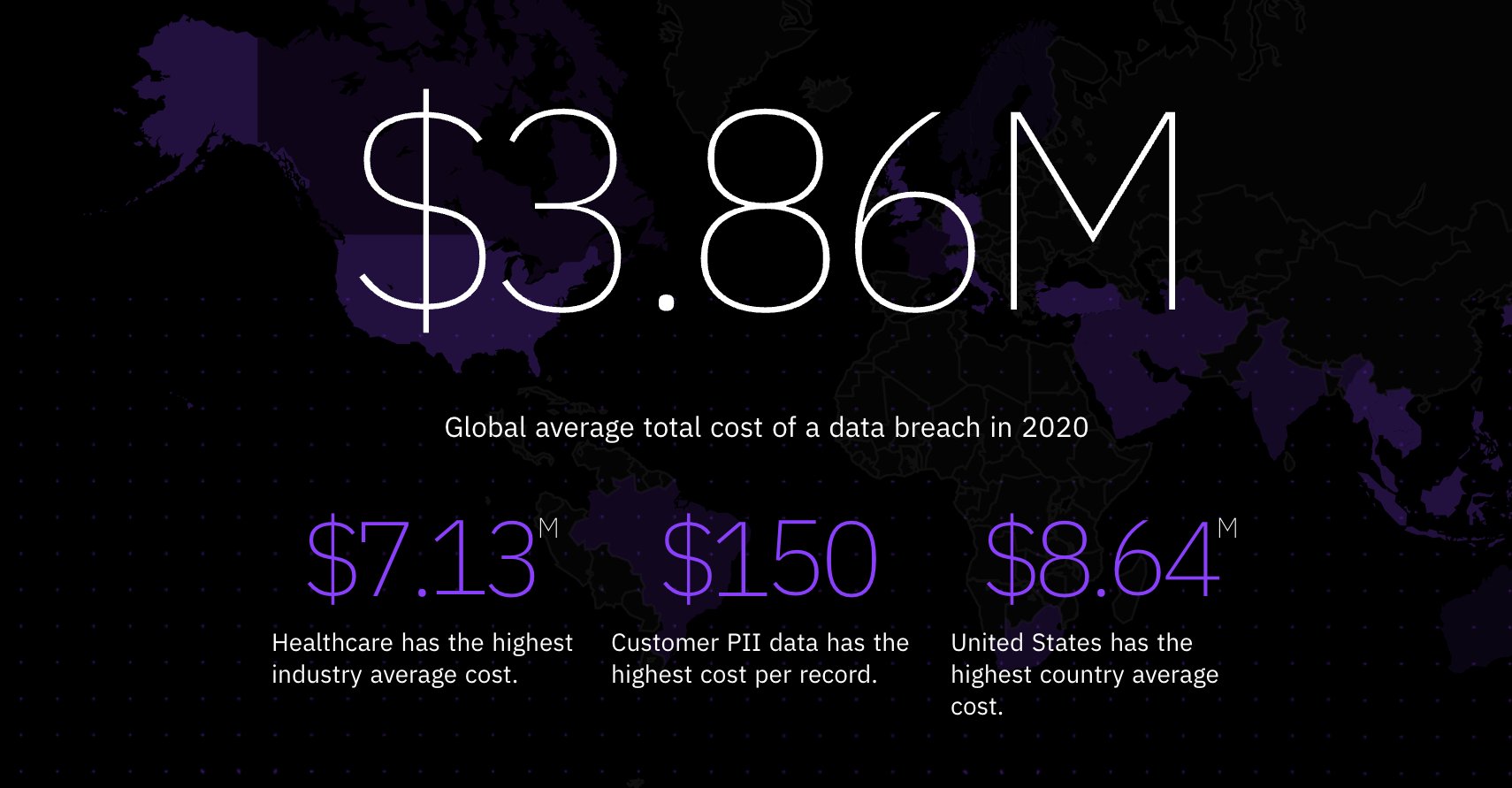
While the numbers are related to large enterprises, don’t mistakenly think that data breaches do not affect small companies and regular users.
What can hackers do when they gain access to your email?
1. Personal data theft. The criminals, once with access to your email, can easily reset other account passwords, gaining more information about your personal data and connected accounts. Your social media profiles, confidential information of your company, other types of secret data can be severely damaged.
2. Financial damage. Financial damage is usually the goal of hackers targeting businesses. Gaining access to bank details, they can easily withdraw and transfer funds, make unauthorized purchases and play with your accounts the way they want without ever being noticed. It also happens with personal accounts: stealing credit card information and passwords is the
3. Email spam and spoofing. Online criminals can send over scam emails to literally everyone on your contact list. Such letters usually contain links to phishing websites that might give access to all of the data that your friends have stored in their inboxes. Spoofers can send emails from your name to make them look more trustworthy, which destroys your business correspondence and email list you’ve been growing for years.
The Necessity of a Strong Password
The hardest thing for hackers is obtaining the password. Once they have it, the possibilities are limitless. Besides, many people use the same email and password across a number of websites, making it even easier for hackers to access all of them.
That is why the zero-step of increasing your online security is having strong and unique passwords across your accounts.
In 2021, it shouldn’t be even discussed, but users continue to ignore the classics. Having a strong password is paramount and the easiest way to secure your email.
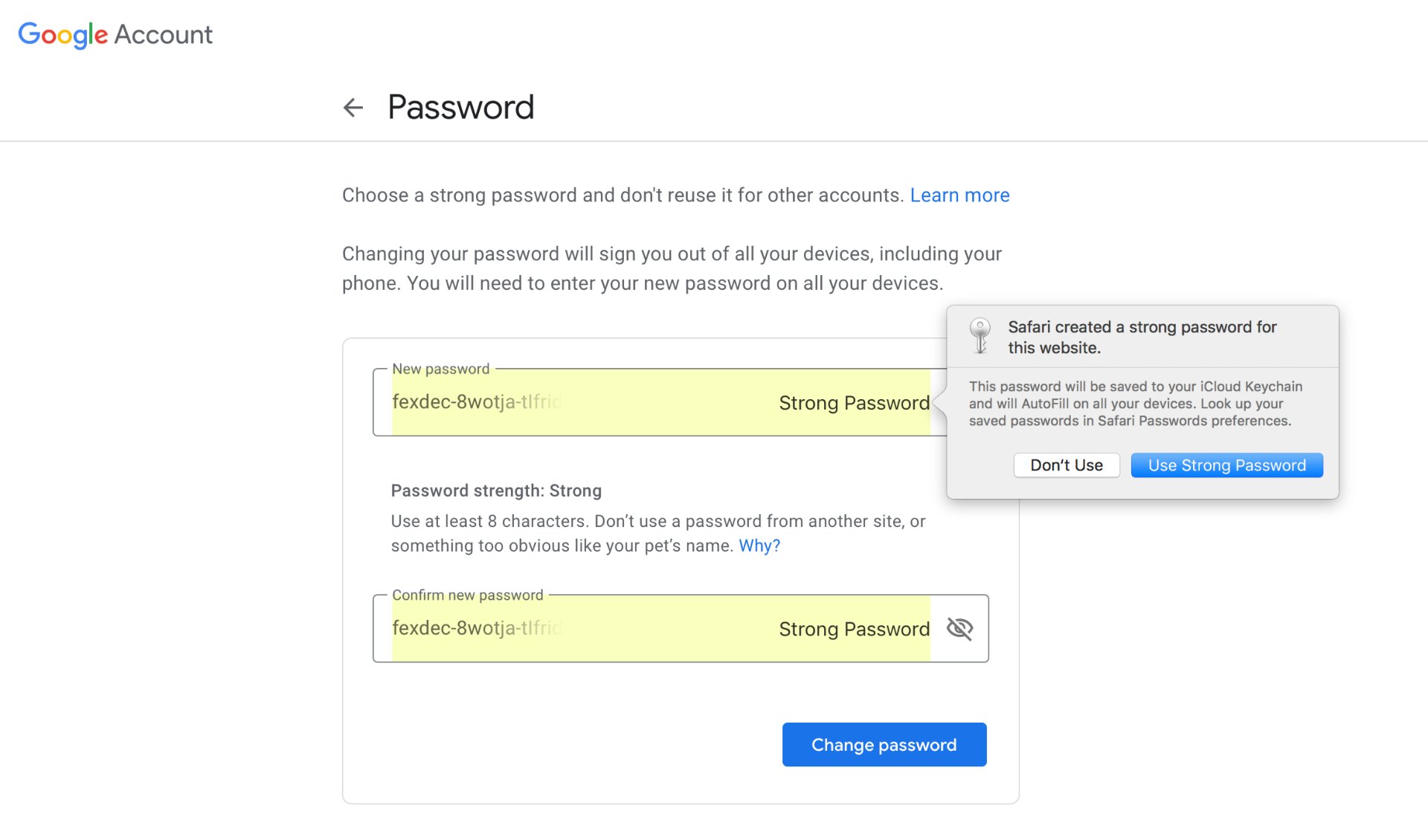
While you think that having long passwords might seem troublesome, people are enabling multi-factor authentication and downloading password managers. A strong password is not a recommendation, but a necessity.
The key ingredients of a solid password include
- a good length (no less than 8 characters, the more the better)
- a mix of numbers, letters (lower- and uppercase), and symbols
- no mentions of your personal data or dictionary words
- no sign of birth dates, security numbers, or address – forget about that!
Again, every key site you use deserves a unique password. To ease the process of memorizing them and keeping them all in place, better use a good password manager or strong password suggestions that many devices and tools have. For example, Apple allows you to generate strong passwords that are stored encrypted.
5 Best Ways to Protect Emails
Having a strong password may not be enough, especially when it comes to business-related activities. Let’s view other ways you can choose to make your email account protected.
1. Enable Two-factor Authentication
Using a 2FA helps to add another layer of security to your account. Don’t skip it on the company’s emails.
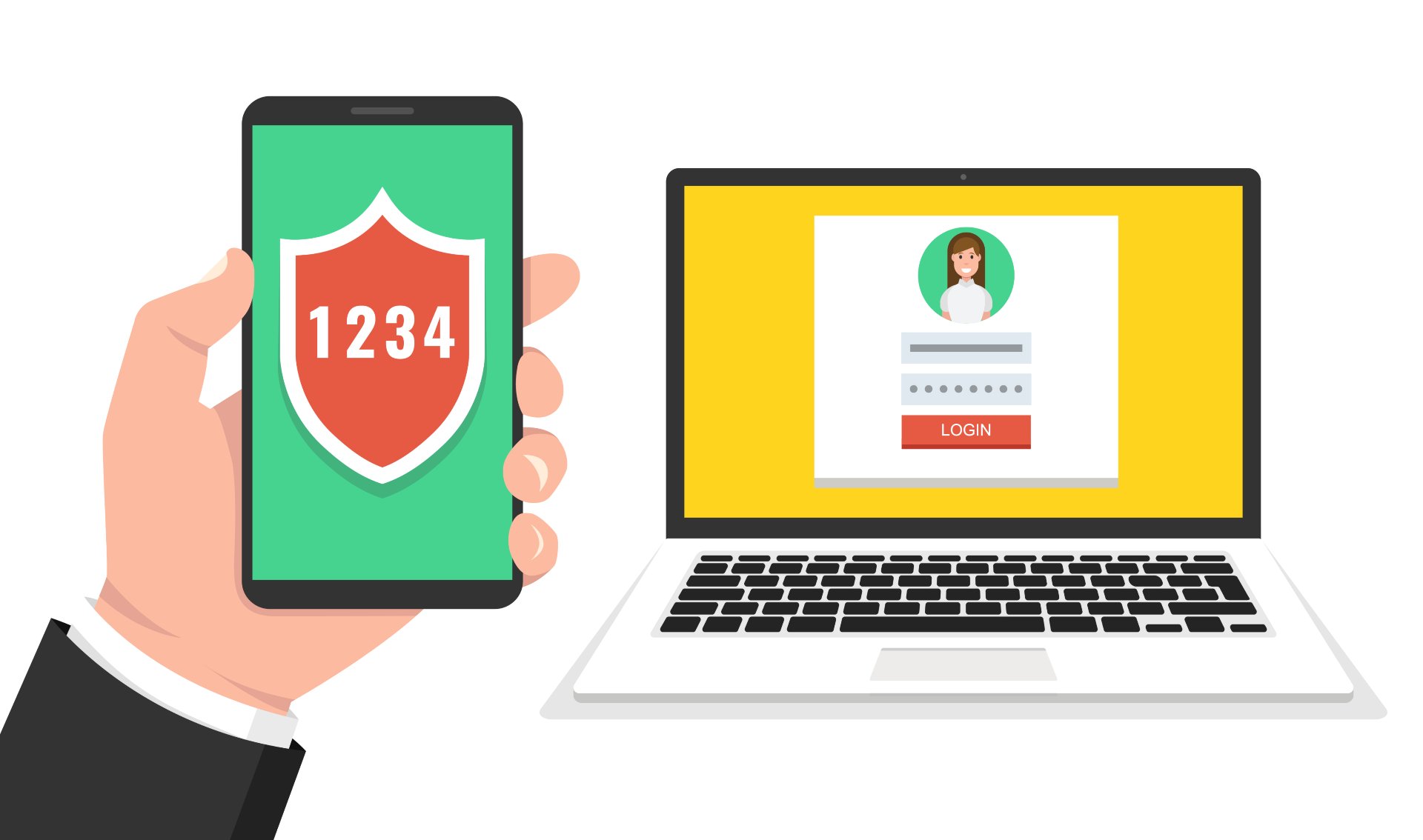
The first step is entering your username and password while the second one is typing a code that you receive via backup email or SMS. It makes the overall process of accessing your account more complicated yet more protected from hackers.
When you set up an email automation campaign using email sending tools targeted at thousands of your customers, don’t skip the suggestions to enable two-factor authentication. It will secure the whole process in case something goes wrong as well as it will keep your customers’ data safe.
2. Keep Everything Updated
Such a small thing like outdated software actually opens more vulnerable spots for future attacks.
Keep your OS updated and apps updated always. Use the latest versions of tools for work.
Wannacry proved that all to well: Outdated software leaves NHS ‘vulnerable to cyber attack’ new research sayshttps://t.co/5M2eXofmGR #healthcare #NHS #software #CyberSecurity #cyberattacks
— Darren Ewers (@DarrenEwers) April 5, 2019
Also, all your anti-malware software should be always in place and updated. Upgraded versions have more useful features, with all the bugs fixed, and all security holes repaired.
Overall, the newer the version of your software, the stronger it is in terms of security.
3. Clean Your Devices
While using anti-virus is one of the steps of preventing fraudulent files from reaching your device, it might not always be enough to secure all your valuable data.
On one hand, you need to regularly clean your device from all the unnecessary files that are not visible at first glance. They are not only taking device memory but might as well carry suspicious data that can cause damage.
On the other hand, installing data recovery software is a smart way of securing all your information from getting lost for good. Using software like Disk Drill will help to restore any missing files or recover deleted documents. The software has also extra tools for cleanup, data backup, duplicate finder, and device health monitoring.
If you don’t want to end up losing important documents obtained from email communication or discrediting your company in front of your clients, it pays to have a solid data protection system.
4. Protect Yourself from Email Fraud
For companies, especially for those doing email marketing, it’s critical to have well-configured email authentication solutions. They are used to block fraudulent and damaging email uses.
Setting up records like DKIM, SPF, DMARC, you’ll have ultimate email protection.
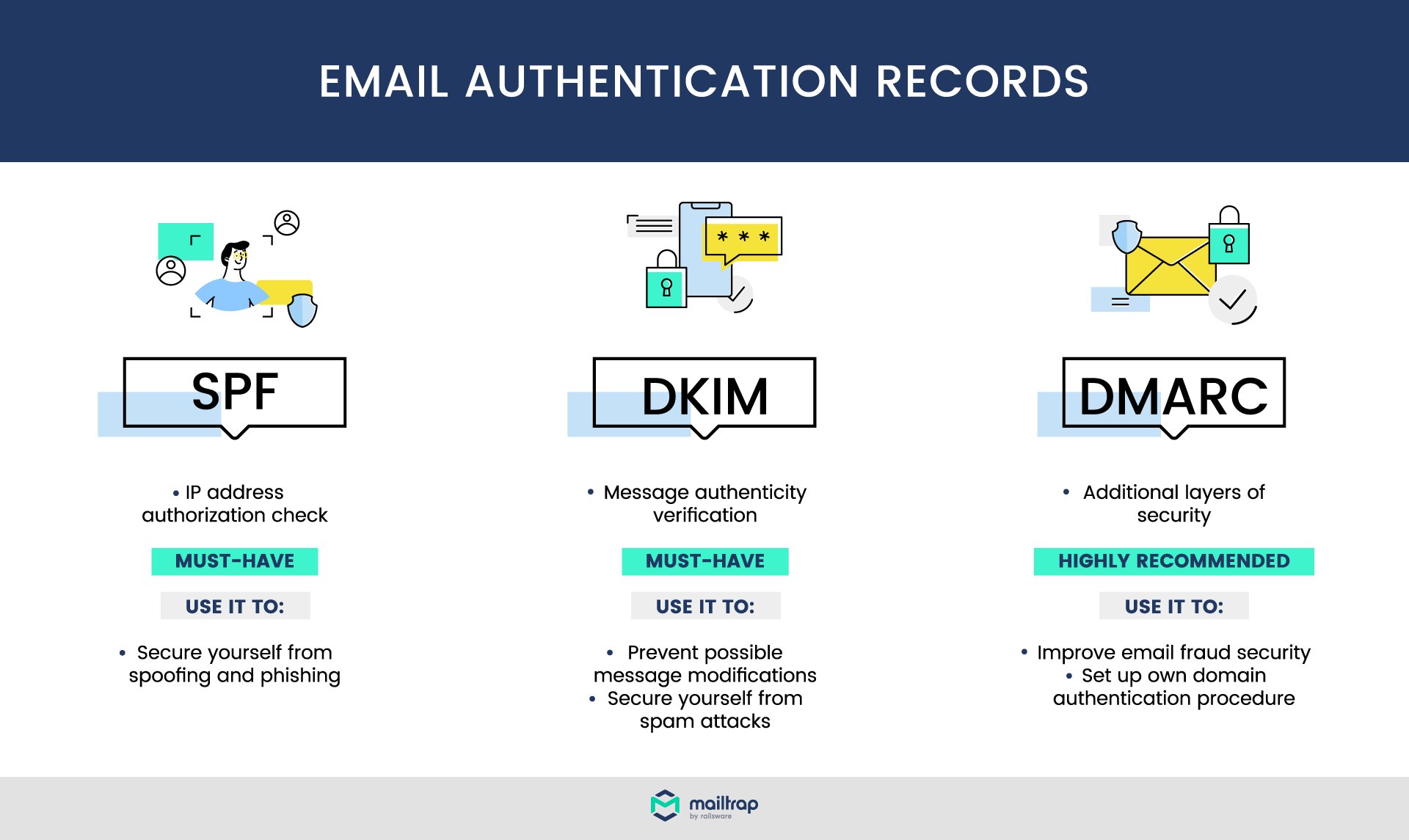
When using email authentication records, it is possible to protect your domain and employees from email spoofing and other frauds. It makes it much harder for a hacker to get access to your employees’ emails and use your company domain for impostor illegal activities.
In combination with spam testing tools, you’ll be able not only to increase the deliverability of emails but refine the IP and reputation of the domain and save your company emails from phishing and dealing with spam complaints.
For setting up email authentication records for your business emails, you’d probably need the help of a tech-savvy person. However, there are many checkers and online tools assisting in generating DKIM and other authentication records.
From a personal perspective, popular email clients, like Gmail and Apple Mail, have enabled authentication solutions by default. At the same time, if you’re going to use other clients, APIs, automation tools, and other tech upgrades of your personal email activity, it’s better to think of setting email authentication properly.
5. Use Pro-security Options
Apart from email authentication, you should consider using other pro-security solutions, like email encryption. Email encryption includes the conversion of emails into a secret code. The latter prevents any unauthorized access and enables better privacy. Encryption helps to protect all the data and ensure that only the designated recipient gets the email.
Besides, using VPN and protecting your WiFi is important for increased security.
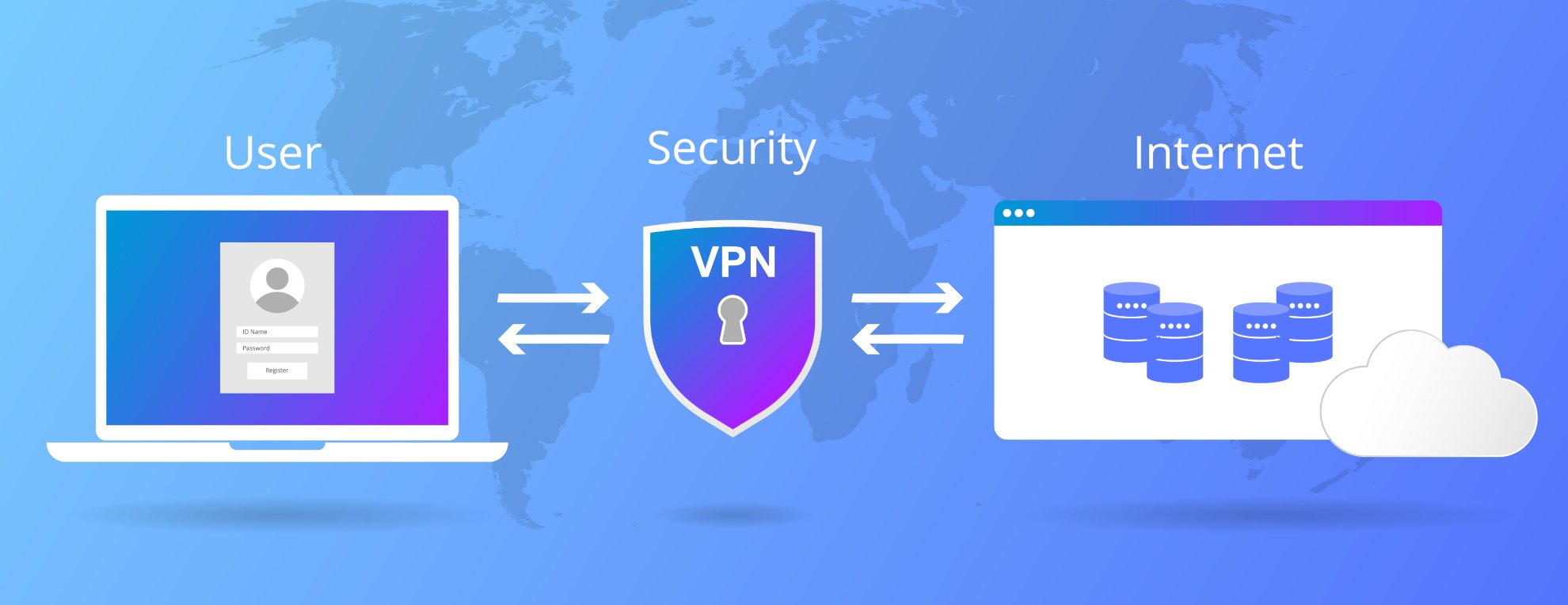
VPN adds privacy and serves as a safety shield while you are browsing online. It should be always used for public networks and will not be extra when using one at home. VPN tools encrypt information exchanged through an online connection, enabling private browsing.
Beware of the Human Factor
As the zero-step related to passwords, there’s a major comment on the human factor as the critical one.
Security starts with you. It is vital to be responsible and act according to the main security principles when it comes to protecting your email.
- Never click on suspicious links that come from unknown email addresses
- Always log out from shared computers
- Never remember a password and login when you use someone else’s device
- Be mindful of which programs and applications you install
- Never disclose your personal information to others
The more you do to enable maximum data protection, the smaller the possibility that your email gets hacked and all the personal data becomes compromised.
Conclusion
To minimize the risk of data breaches and hackers’ attacks, you should follow the recommendations above. It pays off in the long run whenever you know that all your personal and financial information is kept safe, encrypted, secured by two-factor authentication, a strong password, and several anti-malware tools.
Technologies might have made it possible for hackers to gain access to sensitive data, but they have also given people the possibility to apply solid security measures and keep all their information under protection.

